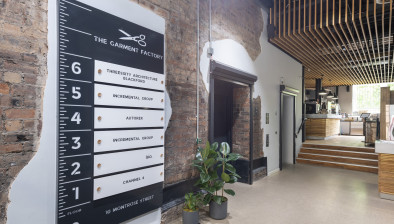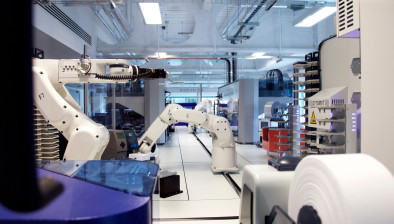UKRI funding boosts Scottish firms by £118m
The UK Government has invested about £118 million into top Scottish businesses and researchers to help tackle major societal challenges that will help the UK recover from the coronavirus pandemic.

The funding has been administered through UK Research and Innovation (UKRI), which works with organisations such as universities, research organisations, businesses, and government in an effort to create the best possible environment for research and innovation to thrive.
UKRI is currently funding 155 Scottish projects across 24 researchers and 124 businesses that intend to advance medicine manufacturing, create the UK’S first remote low-carbon aviation test centre and demonstrate the viability of a drone-enabled distribution network for medical items and organs, for example.
The funding falls under UKRI’S Industrial Strategy Challenge Fund (ISCF), which has already provided £1.7 billion of funding for companies across the UK – spanning clean growth, ageing society, the future of mobility, and artificial intelligence and data economy.
Among the Scottish projects to be awarded funding through ISCF is the Medicines Manufacturing Innovation Centre, which is set to be located near Glasgow Airport. UKRI awarded £13m to help fund the centre, which aims to help the UK lead in small molecule pharmaceutical and fine chemical manufacturing, The Scotsman reports.
Another medical project has received £1.5m to improve medical delivery in Scottish urban and rural areas. The project unites expertise and skills from large and small organisations, universities and non-profit research and technology bodies to demonstrate the technological and socio-economic viability of a drone-enabled distribution network for medical items such as organs, blood products, high-value medicines and medical consumables across Scotland.
Almost £2m has also been invested to create the UK’S first remote low-carbon aviation test centre at Kirkwall Airport in Orkney. The project will trial a series of aviation technologies including low-carbon aircraft that utilise electric, hydrogen or synthetic fuel to replace conventional fossil fuels.
Another project in Orkney has been given £15m to show the capabilities of a self-contained smart energy network, and its potential impact. The project, which is being led by The European Marine Energy Centre, is installing flexible technologies to address the current restrictions locally and to allow energy to be supplied at minimum cost, which can be replicated across the UK and internationally.
Mike Biddle, ISCF programme director at UKRI, said: “The projects we’ve seen so far in Scotland will help tackle the Ten Point Plan for a Green Industrial Revolution. For example, the Medicines Manufacturing Innovation Centrewillhelpadvanceinnovations to healthcare to meet speed, scale and demand, which we’ve learnt to be crucial over the past 12 months. We’re already starting to see these innovative ideas be brought to life.”









